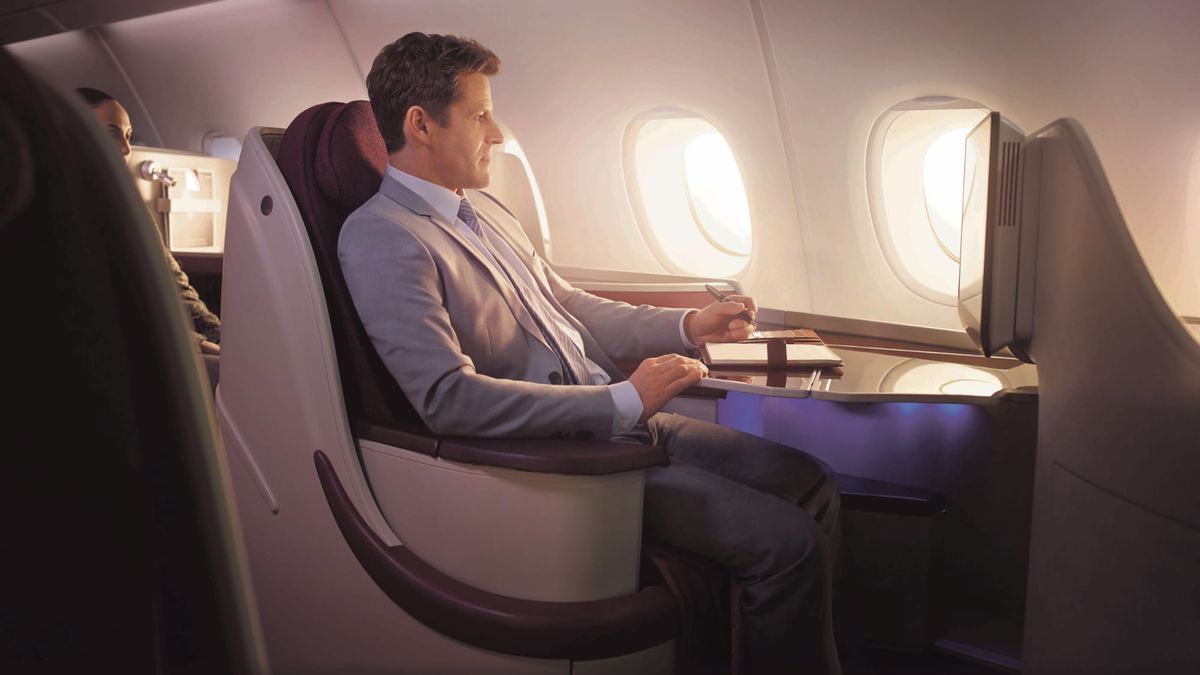DEVELOPING INTERNATIONAL BUSINESS PROMOTES THE IMPRESSIVE AIRLINE INDUSTRY SALES
28/01/2024
Business class fares made up 5.6 per cent of all corporate bookings in 2023, up from four per cent in 2022. first class passengers made up three per cent of business travel bookings, up from two per cent over the same period. The growth of international business activities has promoted the city’s aviation industry strongly, especially notably with business class tickets, favored by businessmen for business trips. .

BUSINESS ACTIVITIES DEVELOP STRONGLY IN PERTH
Perth has seen the largest growth in incoming international business travellers over the past year, with a 34 per cent increase between June-December 2022 and January-July 2023.
The figures were revealed in the latest booking data from Corporate Traveller, the flagship SME division of the Flight Centre Travel Group.
The growth puts Perth in the running to outpace Melbourne in international business travellers in FY24, as Victoria’s capital city only increased its arrival figures by seven per cent for the same period. Likewise, Sydney’s growth in total international business travellers only increased by eight per cent.
Tom Walley, Corporate Traveller’s Australian-based global managing director, said the rise in international business travel is partly due to Western Australia’s continued growth in the construction and mining sectors.
“Corporate Traveller data from earlier this year revealed that the construction industry is the leading sector for travel spend, having increased its expenditure by 98 per cent between the first quarter of 2022 and 2023,” Walley said.
“It’s a clear indicator that business is booming with more travel required for employees and stakeholders needing to visit new sites and projects across Australia.
“With Western Australia’s continuing prosperity in mining and resources, it’s no surprise business travellers from interstate and international locations are flocking to the state for this reason.”
The growth in incoming business travellers to Perth can also be attributed to the State Government’s commitment to boosting business opportunities and events in the region.
In the 2023-24 budget, the WA state government pledged to deliver a $47.6 million boost to Western Australia’s building and construction sector, which is set to include ‘a range of new initiatives to ramp up local training and attraction of skilled workers from overseas’.
There is growth across the board for international business traveller arrivals for all five Australian cities included in the data analysis. Yet surprisingly, Melbourne and Sydney are lagging behind the trajectory of Perth (34 per cent growth), Brisbane (25 per cent), and Adelaide (21 per cent).
“Melbourne and Sydney have always had good international connections in corporate business, with both CBDs home to many global companies and international events; Sydney is hosting the World Business Forum this October, for example,” Walley added.
“However, Brisbane, Adelaide and particularly Perth are gaining international business presence on a faster scale. We can only expect this to continue, with the continuation of hybrid working and growing globalisation in business.”
Total incoming international travellers (bookings)
| Australian Cities |
Growth in total incoming international travellers (June 01, 2022 – December 31,2022 & Jan 01, 2023 – July 31,2023) |
| Melbourne |
7% |
| Sydney | 8% |
| Brisbane | 25% |
| Adelaide | 21% |
| Perth | 34% |
BUSINESS AND FIRST CLASS GROWS OUTSTANDINGLY

Business and first class travel among Australian corporates grew by 43 per cent in 2023 according to new data from Flight Centre Travel Group’s flagship corporate divisions, FCM Travel and Corporate Traveller.
Business class fares made up 5.6 per cent of all corporate bookings in 2023, up from four per cent in 2022. first class passengers made up three per cent of business travel bookings, up from two per cent over the same period.
Conversely, economy and premium economy cabin class dropped in popularity among corporate travellers by 2.4 per cent, in a sign that more travellers were prioritising comfort, wellbeing and status, despite airfares rising across all classes in 2023.
Global FCM COO/Flight Centre Corporate MD for ANZ, Melissa Elf, said 8.6 per cent of corporates booking Business or First Class travel was a sign of healthy business activity.
“Growing popularity at the front end of the plane reflects growth and stability across Australian businesses,” Elf said.
“This data comes in a period of economic uncertainty, and it goes to show that despite many businesses feeling the pinch of the cost of doing business, travel continues to be a necessity for business success and survival.
“Studies show that business travel correlates to economic growth, so as economists predict the flattening of inflation, we can expect to see activity in corporate travel build.”
Elf said while economy had seen fluctuations in the booking share over the last two years, premium economy was the biggest loser of the cabin classes.
“Premium economy made up 6.5 per cent of the cabin class share in the first half of 2022. In the second half of 2023 it was down to four per cent.”
Elf said the fast pace of business travel sometimes took its toll on travellers, so there was a focus on health, wellbeing and maintaining productivity when travelling for work.
“Many of our corporate travellers are making the decision to book business or first class travel so they can get a decent sleep if they’re travelling through the night or continue to work productively if they’re travelling through the day. It can also mean more nutritious meals, and less time lost through the check-in and boarding process.
“It all contributes to general health, wellness and productivity levels, so the extra cost of the fare is viewed as worthwhile for corporate travellers who are short of time as it is.”
Elf suggested travellers were well-researched before booking to ensure they were getting the most out of their cabin class.
“While business class will generally be more affordable than first class when comparing the two products across multiple airlines, it pays to know the aircraft and carrier you’re flying with to understand what your inclusions will be,” she said.
“For example, unlike first class, flying business class doesn’t ensure a lay-flat bed; some aircraft will not have lay-flats in the Business cabin, but many will. This is where corporate travel management companies can really ensure you’re maximising benefits.”







